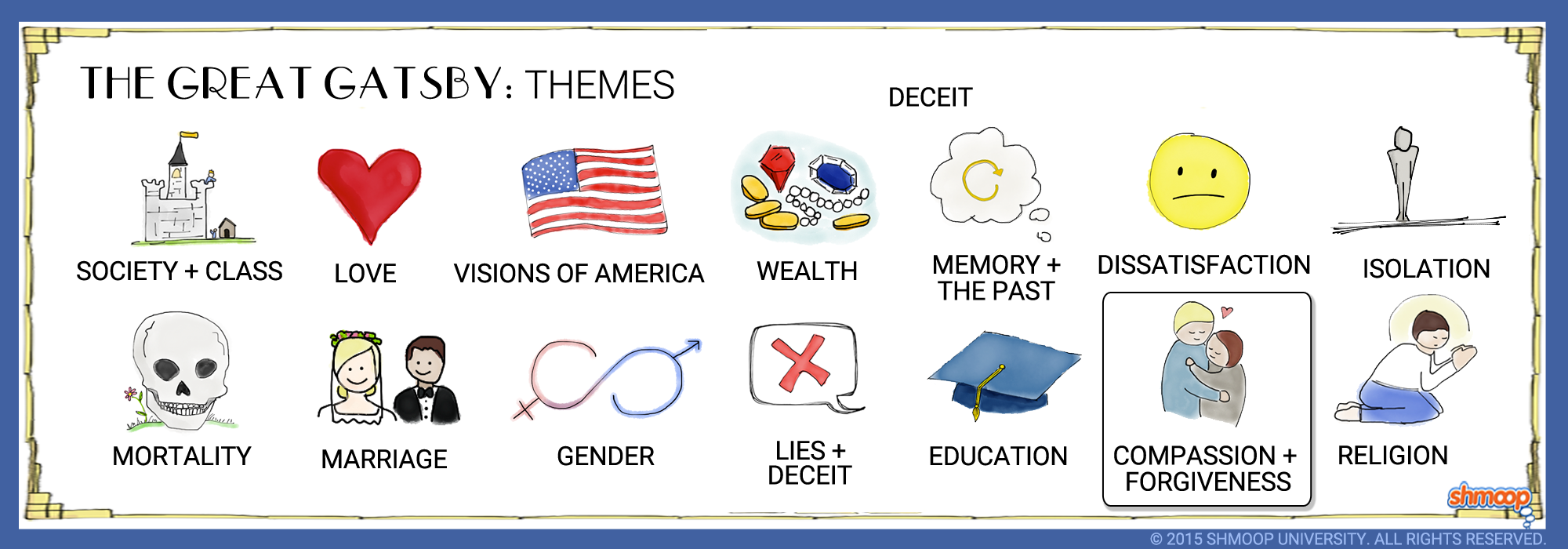 (Click the themes infographic to download.)
(Click the themes infographic to download.)
The characters in The Great Gatsby all show a unique combination of a willingness to forgive and a stubbornness not to. Gatsby is willing to forgive Daisy’s marriage to another man, but not her loving him. Daisy is willing to forgive Tom for cheating but unwilling to forgive Gatsby for deceiving her about what kind of person he is. Much of the sadness of The Great Gatsby comes from this kind of almost-forgiveness; the characters are taunted with the possibility that all will be forgiven, only to have it torn away because of another character’s stubbornness.
Questions About Compassion and Forgiveness
- What gets forgiven and what does not get forgiven in this novel? Why?
- Nick claims in the first page of the novel that he was told to never criticize. Is he compassionate towards Gatsby, or does he judge the man? Does this evolve over the course of the novel?
- Are we, the reader, compelled to forgive Wilson for murdering Gatsby?
- Back to Nick’s father’s advice at the beginning of the novel: what is the effect of this opening? Might it be intended as advice for us, as we read the story? If so, how easy is it to read The Great Gatsby without criticizing? Is the advice perhaps ironic, indicating that we are supposed to judge?
Chew on This
Although all of the characters behave badly in the novel, Daisy is the one who seems to demonstrate forgiveness by her constant acceptance of her husband’s behavior.
Although it might appear that Tom and Daisy "forgive" each other, the reality is that they simply choose to ignore each other’s transgressions. Forgiveness plays no role in their actions or their marriage.